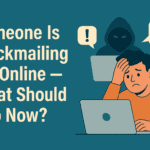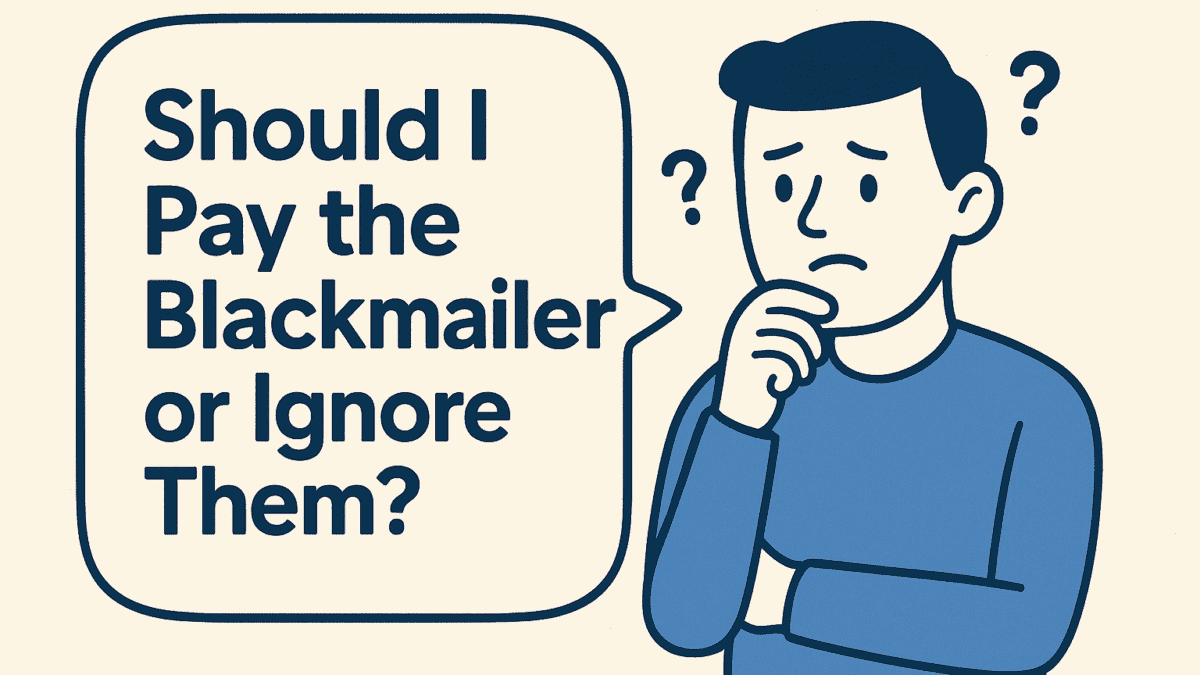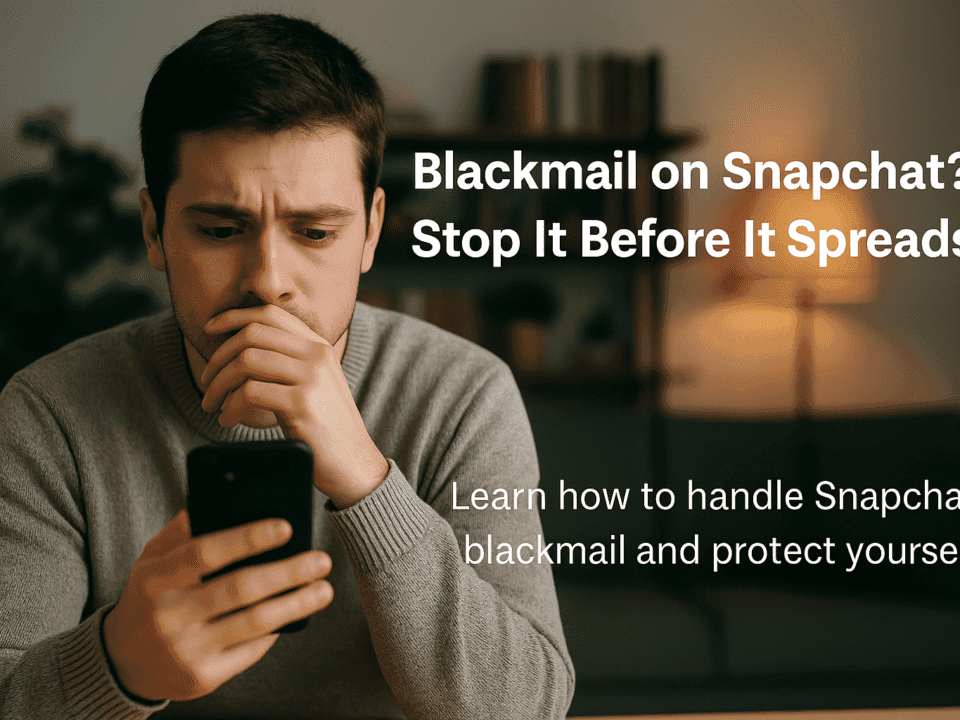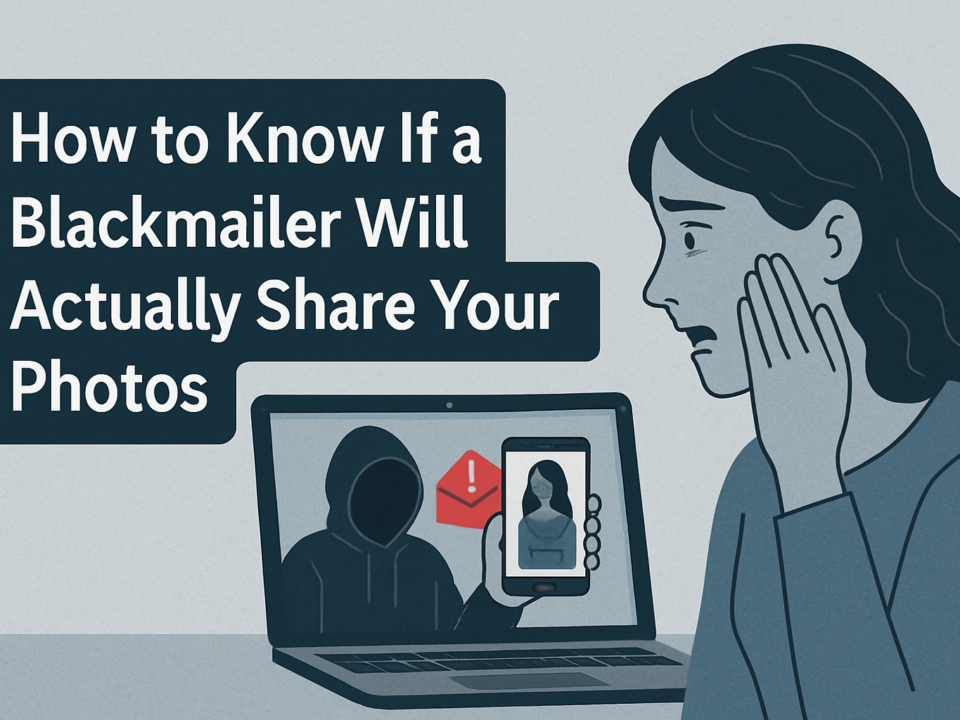
How to Get Rid of Blackmailers Without Sending Money – What You Need to Know First
May 26, 2025
Someone Is Blackmailing Me Online — What Should I Do Now?
May 28, 2025The moment it happens, your mind goes into overdrive. A stranger suddenly threatens to release your private photos or messages unless you send them money. It feels like a trap with no good exit — and one question begins looping in your head: Should I pay the blackmailer, or just ignore them and hope it stops?
This is a terrifying situation. But you're not alone — and you're not powerless. Many people have faced this exact moment. What matters most now is what you do next.
The Psychology Behind the Threat
Blackmailers count on fear. They know that a few well-placed words — "pay or else" — can send you spiraling. And that panic is their weapon.
Their goal is simple: to control you. By threatening to leak something deeply personal, they’re trying to make you act quickly, emotionally, and without thinking clearly.
Understanding this helps you take back a little control.
What Happens If You Pay?
It might seem like paying them will make it go away. But here’s what often happens instead:
They ask for more. Once you pay, they know you’re scared — and they’ll likely come back with more demands.
They don’t stop. Payment rarely guarantees silence. There’s no contract, no assurance they won’t still share what they have.
They may sell your information. Some scammers pass on your details to other criminals. You could become a target again.
In short: paying can dig a deeper hole.
Many victims report that paying gave them only temporary relief, followed by worse harassment.
What Happens If You Ignore Them?
This depends on the blackmailer’s intent. Some are bluffing. Others aren’t.
If they’re bluffing (which is surprisingly common), they rely on your fear to force a response. When you ignore them and cut off contact, they often move on to easier targets.
If they’re not bluffing, ignoring them might escalate threats — but it also removes their power. A lack of response weakens their control over you. Many victims who ignored blackmailers (with proper support and safety measures) reported that the threats eventually stopped.
The Risks Either Way
Paying: Could encourage continued harassment or expose you to more scams.
Ignoring: Might provoke more threats, especially early on.
So the real answer isn’t simply “pay” or “ignore.” It’s about how you strategically respond — and when to bring in professionals.
What Most Experts Recommend
Cybersecurity and legal experts generally do not advise paying. It’s not just about ethics — it’s about risk. When you pay once, you become more valuable to the attacker.
Instead, they recommend:
Cutting contact (without confrontation)
Securing your accounts and privacy
Monitoring your name and content online
Getting expert help if needed
Every case is unique, but you don’t need to face it alone.
You're Not Their First Target — Or Their Last
Blackmailers often use the same messages and tactics on dozens — even hundreds — of people. You're part of a broader scam operation. Understanding that can be empowering.
They rely on shame and silence. But the moment you take a breath, step back, and look at it for what it is — a calculated playbook — you start to take your power back.
A Better Way Forward
If this is happening to you right now, ask yourself:
Have they really posted anything?
Are they trying to rush me into action?
These are signs of manipulation. And there are ways to respond that reduce risk and help you regain control — especially when backed by experts who know how these criminals operate.
Final Thought
So — should you pay a blackmailer or ignore them?
The truth is, neither choice alone is enough. What you need is a calm, informed, and tactical response.
You don’t have to respond in fear. You can respond with strategy. And if you're unsure what to do next, speaking to professionals who handle this every day could be your safest first step.
Because you deserve your life back — without fear, and without being silenced.




